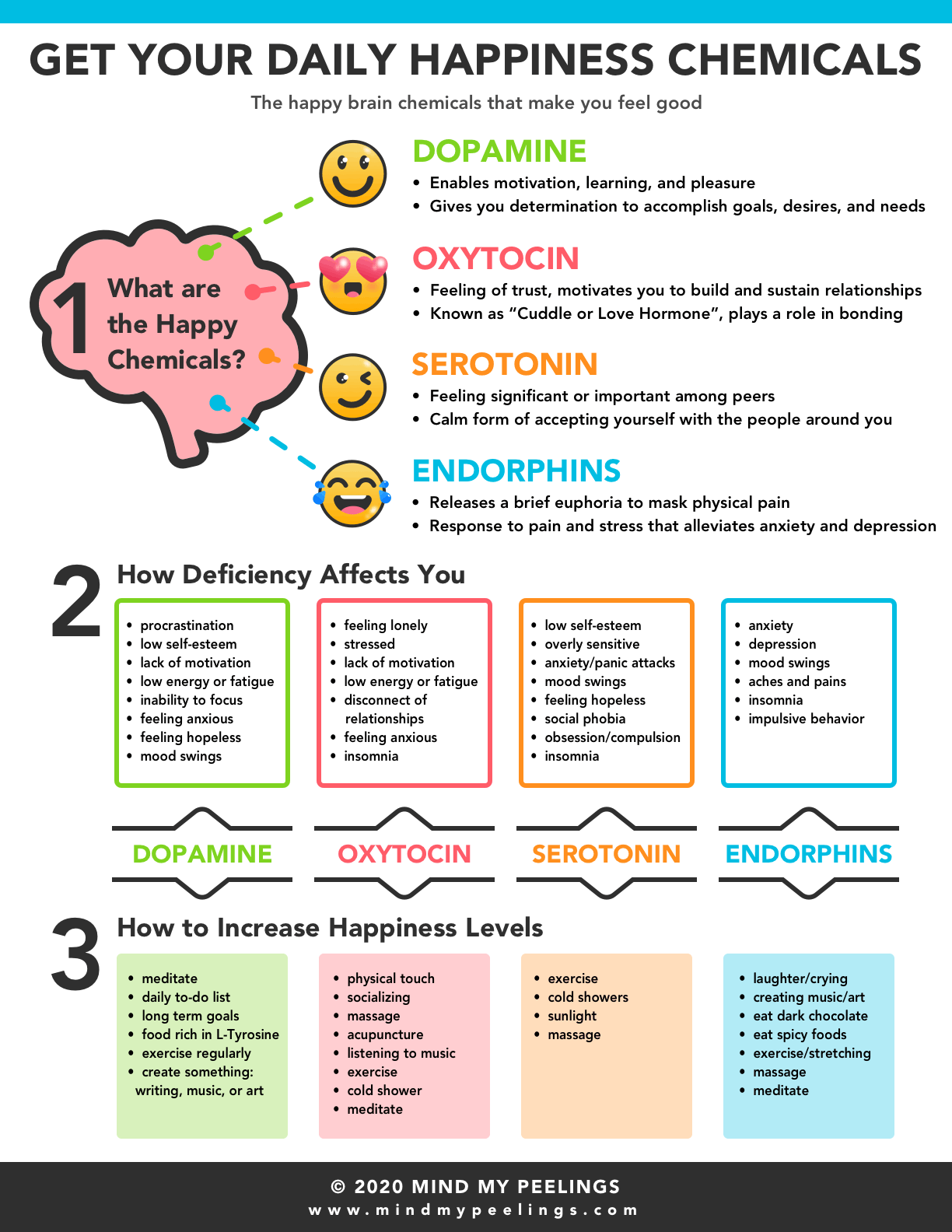
No secret here, being happy can make you live a longer healthier life! Easier said than done huh?
While the science of a smile has been proven many times, we know and fully understand that keeping a happy attitude is becoming increasingly harder. We've had a pandemic, an economic collapse and many other aspects of life making the day to day a more stressfull experience. BUT just as being happy is a scientifically proven method to stay young, here we will list the scientifically proven ways to biohack your way into feeling happy!
But first, let's talk about the hormones your body produces to make you feel this way: among them are endorphins, which are released in response to pain or stress and produce a sense of euphoria; dopamine, which is involved in the brain's reward system and helps to regulate emotions; and serotonin, a neurotransmitter that regulates mood and social behavior. It is thought to play a role in depression, anxiety, and other mental health disorders!

Let's talk about 5 simple things you can do to improve your happy hormone levels, and thus improve your health:
- Get a good night's sleep: Most people are aware of the importance of getting a good night's sleep, but many do not realize the full extent of the impact that sleep deprivation can have on the body. When we don't get enough sleep, our bodies produce more stress hormones like cortisol and adrenaline. These hormones are designed to help us deal with short-term stressors, but when they are produced in excess, they can lead to feelings of anxiety and paranoia. Sleep deprivation can also cause serotonin levels to drop, which can further contribute to feelings of depression and anxiety. Fortunately, there are things we can do to reduce our stress hormone levels and increase our serotonin levels. Exercise and relaxation techniques like yoga or meditation can help to reduce the production of stress hormones, while spending time in nature and exposure to natural light can help to boost serotonin levels. Getting enough sleep is an important part of managing stress levels, but it is only one piece of the puzzle.
- Eat healthy foods: Serotonin and dopamine are neurotransmitters that play important roles in the brain. Low levels of these chemicals have been linked to depression and anxiety. Therefore, it makes sense that certain nutrients that help to boost levels of serotonin and dopamine may also help to improve mood. Omega-3 fatty acids, magnesium, and vitamin D are all thought to have mood-boosting properties. Omega-3 fatty acids are found in fish and other seafood, as well as in nuts and seeds. Magnesium is found in leafy green vegetables, whole grains, legumes, and nuts. Vitamin D is found in fortified milk and orange juice, as well as in fatty fish. Including these nutrients in the diet may help to improve mood and alleviate symptoms of depression and anxiety.
- Exercise: There is a growing body of evidence that suggests that physical activity can have a positive impact on mental health. One way that exercise may improve mood is by increasing levels of neurotransmitters such as serotonin. Exercise has been shown to increase levels of serotonin, which may help to improve mood. Additionally, exercise can also help to reduce stress and anxiety, which can further improve mood. Therefore, there are several ways that physical activity can help to increase levels of neurotransmitters and improve mood.
- Connect with others: Social interaction is known to have a positive effect on our mental and emotional health. In fact, studies have shown that social interaction can result in higher levels of serotonin and dopamine, two important chemicals that help to regulate our mood. The act of interacting with others releases these chemicals into our system, which helps to improve our mood and reduce stress levels. Additionally, social interaction helps to keep our mind active and engaged, which can help to prevent cognitive decline. Furthermore, interacting with others provides us with a sense of belonging and support, which can be essential in times of need. Ultimately, social interaction is vital for our mental and emotional wellbeing.
- Reduce stress: According to the American psychological Association, stress is a normal part of life that can be both positive and negative. Positive stress, also known as eustress, can motivate us to meet a deadline or perform well in an important event. Negative stress, on the other hand, occurs when we feel overwhelmed or unable to cope with demands. Chronic stress can lead to serious health problems such as heart disease, high blood pressure, and diabetes. Fortunately, there are a number of simple ways to reduce stress in our daily lives. Exercise, for example, is a great way to reduce stress levels. Just 30 minutes of moderate exercise can help to improve mood and increase energy levels. Other effective stress-busters include relaxation techniques such as yoga or meditation, spending time with friends and family, and getting regular breaks from work. By taking steps to reduce stress, we can improve our physical and mental health.
In conclusion, there are a number of simple lifestyle changes that can help to improve mood and reduce stress levels. Getting enough sleep, exercise, and eating a healthy diet are all great ways to boost serotonin levels and improve mood. Additionally, social interaction and reducing stress can also help to improve mental health. By making these changes, we can improve our overall wellbeing.
Take your TruAge test today with our TruAge Bundle, so you can measure your genetic age and then again six months later after you have taken a step towards a healthier lifestyle.